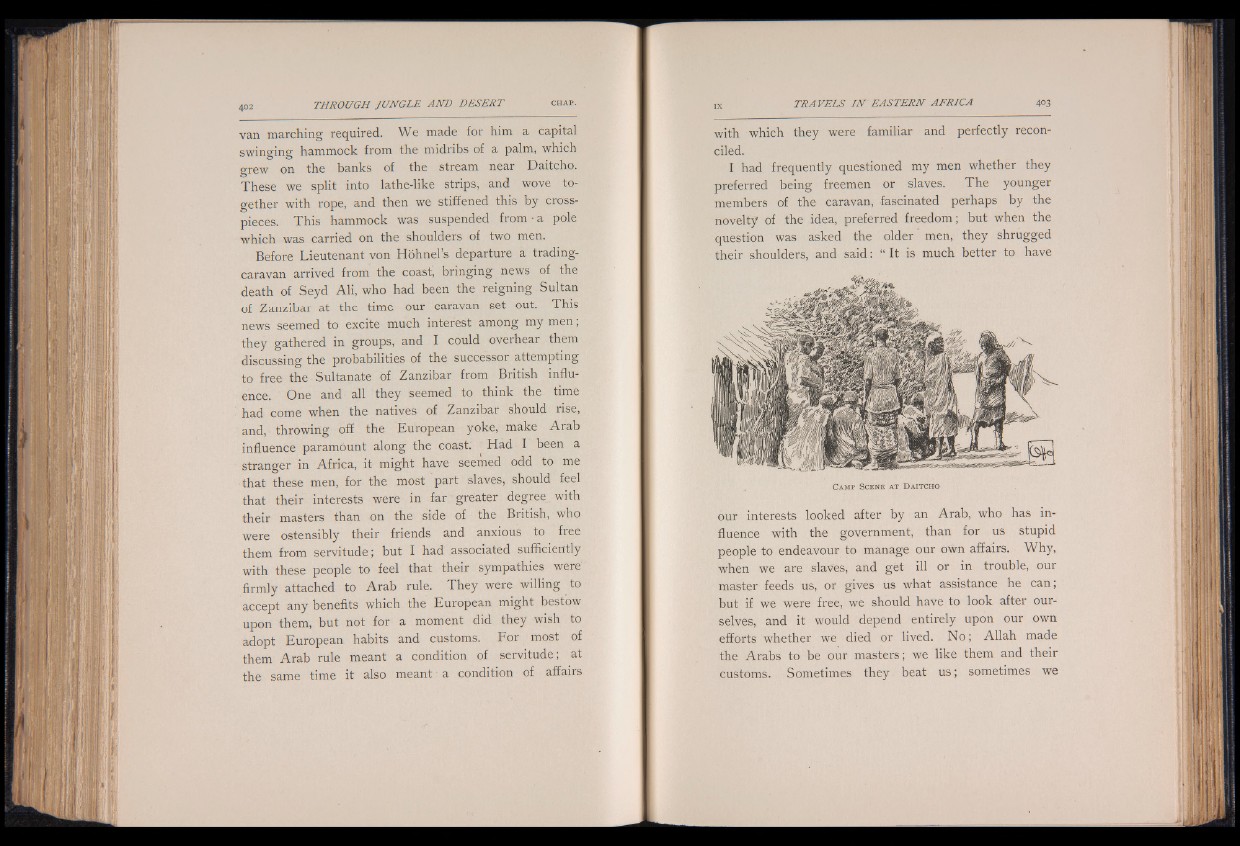
van marching required. We made for him a capital
swinging hammock from the midribs of a palm, which
grew on the banks of the stream near Daitcho.
These we split into lathe-like strips, and wove together
with rope, and then we stiffened this by crosspieces.
This hammock was suspended from • a pole
which was carried on the shoulders of two men.
Before Lieutenant von Hohnel’s departure a trading-
caravan arrived from the coast, bringing news of the
death of Seyd Ali, who had been the reigning Sultan
of Zanzibar at the time our caravan set out. This
news seemed to excite much interest among my men;
they gathered in groups, and I could overhear them
discussing the probabilities of the successor attempting
to free the Sultanate of Zanzibar from British influence.
One and all they seemed to think the time
had come when the natives of Zanzibar should rise,
and, throwing off the European yoke, make Arab
influence paramount along the coast. Had I been a
stranger in Africa, it might have seemed odd to me
that these men, for the most part slaves, should feel
that their interests were in far greater degree, with
their masters than on the side of the British, who
were ostensibly their friends and anxious to free
them from servitude; but I had associated sufficiently
with these people to feel that their sympathies were
firmly attached to Arab rule. They were willing to
accept any benefits which the European might bestow
upon them, but not for a moment did they wish to
adopt European habits and customs. For most of
them Arab rule meant a condition of servitude; at
the same time it also meant a condition of affairs
with which they were familiar and perfectly reconciled.
I had frequently questioned my men whether they
preferred being freemen or slaves. The younger
members of the caravan, fascinated perhaps by the
novelty of the idea, preferred freedom; but when the
question was asked the older' men, they shrugged
their shoulders, and said: “ It is much better to have
C a m p S c e n e a t D a i t c h o
our interests looked after by an Arab, who has influence
with the government, than for us stupid
people to endeavour to manage our own affairs. Why,
when we are slaves, and get ill or in trouble, our
master feeds us, or gives us what assistance he can;
but if we were free, we should have to look after ourselves,
and it would depend entirely upon our own
efforts whether we died or lived. No; Allah made
the Arabs to be our masters; we like them and their
customs. Sometimes they beat us; sometimes we